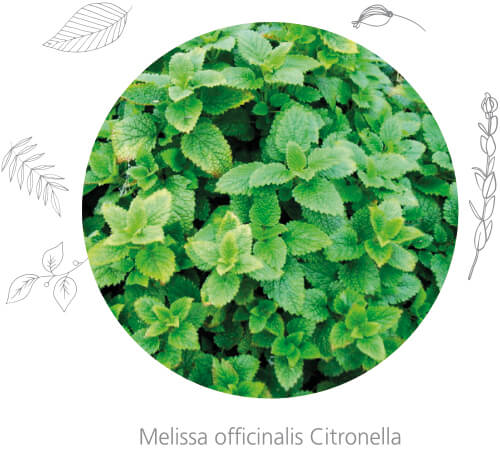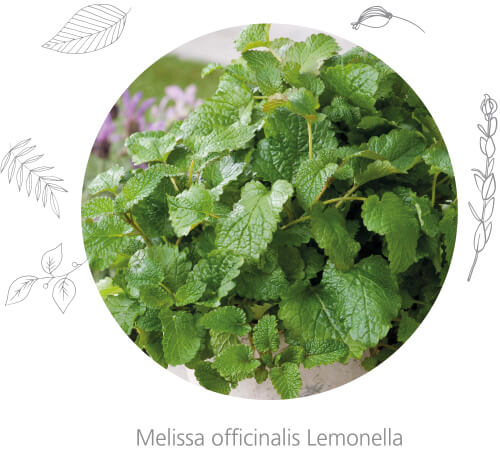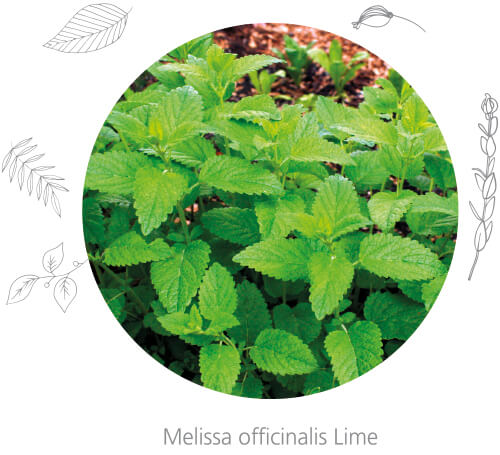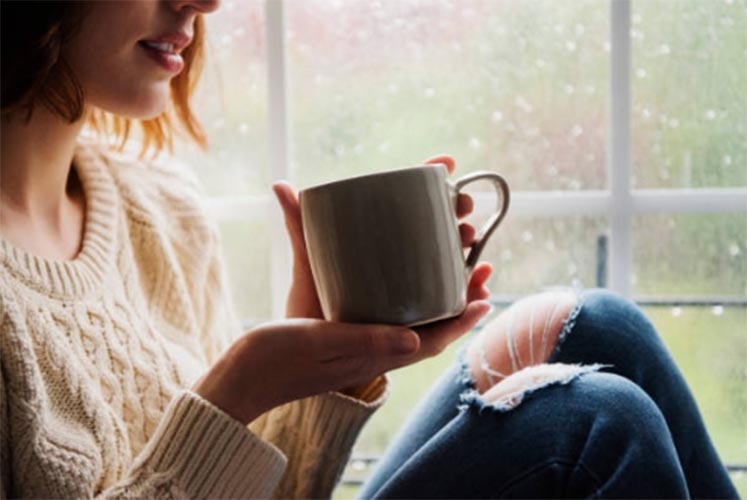-
Δωρεάν αποστολή στην Ελλάδα πάνω από 30€ !

-
Αποστολή εντός 24 ωρών!

-
Αποστολή σε όλο τον κόσμο!



ΜΕΛΙΣΣΟΧΟΡΤΟ
Το μελισσόχορτο είναι ένα βότανο γνωστό από την αρχαιότητα για τις ηρεμιστικές του ιδιότητες και την καταπολέμηση του άγχους. Αναφέρεται από την Διοκσουρίδη και τον Θέοφραστο. Στην Ελλάδα φύονται επτά είδη.
Ονομασία - Είδη
Η λατινική ονομασία του βοτάνου είναι Melissa officinalis (Μέλισσα η φαρμακευτική). Άλλες ονομασίες του είναι: αγριομέλισσα, μελισσόχορτο, μελισσοβότανο, κιτρινέλλα και κιτροβάλσαμο. Βότανο γνωστό από την αρχαιότητα. Άλλες ονομασίες που είχε την αρχαιότητα ήταν μελιττίδα, μελιτταίον, μελόφυλον και μελισσοβότανο. Ο Παράκελσος το ονόμαζε “ελιξίριο της ζωής” και ο Εβελιν έγραφε το 1679 ότι το μελισσόχορτο είναι διαμάντι για τον εγκέφαλο, δυναμώνει τη μνήμη και διώχνει δραστικά την μελαγχολία.
Οικυριότερεςποικιλίεςτουμελισσόχορτουείναι: M. officinalis «Citronella», M. officinalis «Lemonella», M. officinalis «Quedlinburger», M. officinalis «Lime», M. officinalis «Variegata» M. officinalis "Aurea"

Βοτανική Περιγραφή
Το μελισσόχορτο είναι ένα πολυετές φυτό το οποίο ανήκει στην οικογένεια των Χειλανθών (Lamiaceae). Το ύψος του κυμαίνεται από 70 έως 150 εκατοστά. Βλαστοί όρθιοι, διακλαδισμένοι, χνουδωτοί, αδενώδεις. Φύλλα μέχρι 9 εκατοστά, ελαφρώς τριχωτά, ωοειδή, βαθιά οδοντωτά, με αμβλεία ή καρδιοειδή βάση. Σπόνδυλοι με άνθη οδοντωτά με κοντό μίσχο, αντίθετα, που σκεπάζονται από αδενώδες τρίχωμα, κιτρινωπά, μετατρεπόμενα σε λευκά ή ρόδινα κατά την ωρίμαση. Οι ρίζες του φυτού είναι ινώδεις, νηματώδεις και στρογγυλές. Τα φύλλα έχουν μια ήπια μυρωδιά λεμονιού, που σχετίζεται με την μέντα. Τα λευκά λουλούδια προσελκύουν τις μέλισσες, εξ ου και το όνομα του γένους «Melissa».
Ανθίζει από τον Ιούνιο έως τον Αύγουστο. Για θεραπευτικούς σκοπούς χρησιμοποιούνται τα φύλλα, τα οποία μαζεύονται προσεκτικά προ της ανθοφορίας. Η συλλογή γίνεται από τέλη Μαΐου μέχρι αρχές Ιουνίου και από τέλος Ιούλιου μέχρι τις αρχές Δεκεμβρίου.

Ιστορία
Η Μέλισσα η φαρμακευτική είναι η Μελιττίς του Διοσκουρίδη. Μπορεί να είναι το «μελισσόφυλλον» που αναφέρεται στον Θεόφραστο. Στην αρχαιότητα θεωρείτο το ελιξίριο της νεότητας και το χρησιμοποιούσαν ιερείς για ανάλογα σκευάσματα. Ήταν αφιερωμένο στη θεά Άρτεμις. Οι αρωματικές και φαρμακευτικές του ιδιότητες ήταν γνωστές από την αρχαιότητα, όπως μας πληροφορούν ο Θεόφραστος και ο Διοσκουρίδης, ο οποίος το χρησιμοποιούσε ως φάρμακο για το δάγκωμα του σκορπιού και ως εμμηναγωγό.
Για περισσότερο από 2000 χρόνια, το μελισσόχορτο ήταν πολύτιμο συστατικό πολλών ελιξηρίων της ζωής, ενώ ήταν ιδιαίτερα αγαπητό στον Αβικέννα, Άραβα γιατρό του 11ου αι. Επί αιώνες ήταν δημοφιλές ως αποτελεσματική θεραπεία για τη μελαγχολία, το λήθαργο, την κακή μνήμη, αλλά και ως βοήθημα για την αποκατάσταση της νεανικής «ζωτικότητας».

Φαρμακολογικές Ιδιότητες
Η γνωστότερη και περισσότερο επιστημονικά εδραιωμένη ιδιότητα του μελισσόχορτου είναι η δράση του κατά του άγχους.
Εκχύλισμα των φύλλων του μελισσόχορτου δρα στο κεντρικό νευρικό σύστημα μειώνοντας το άγχος, την αϋπνία και ορισμένες διαταραχές του ύπνου. Η δράση επιτυγχάνεται με την αναστολή της δράσης της GABA-T (Gamma AminoButyric Acid Transaminase), ενός ενζύμου υπεύθυνου για το άγχος, την επιληψία και σχετικές νευρολογικές διαταραχές. Η GABA-T διασπά το γλουταμικό οξύ, ένα αμινοξύ (νευροδιαβιβαστής) υπεύθυνο για την «ηρεμία» και σωστή λειτουργία του εγκεφάλου. Οι δραστικές ουσίες στο εκχύλισμα του μελισσόχορτου είναι το ροσμαρινικό οξύ και τα τριτερπενοειδή, ουρσολικό οξύ και το λινολεϊκό οξύ.
Βιβλιογραφία
1. Julien Cases, Alvin Ibarra, Nicolas Feuillere, Marc Roller and Samir G. Sukkar. Pilot trial of Melissa officinalis L. leaf extract in the treatment of volunteers suffering from mild-to-moderate anxiety disorders and sleep disturbances. Med J Nutrition Metab. Dec 2011; 4(3) 211-218.
2. Kennedy DO, Scholey AB, Tildesley NT, et al. Modulation of mood and cognitive performance following acute administration of Melissa officinalis (lemon balm). Pharmacol Bio-chem Behav. 2002;72:953-964.
3. Cases J, Ibarra A, Feuillère N, Roller M, Sukkar SG. Pilot trial of Melissa officinalis L. leaf extract in the treatment of volunteers suffering from mild-to-moderate anxiety disorders and sleep disturbances. Med J Nutrition Metab. 2011 Dec;4(3):211-218.
4. Adefunmilayo E. Taiwo, Franco B. Leite, Greine M. Lycena, Marilia Barros, Damaris Silvei-ra, Monica V. Silva and Vania M. Ferreira. Anxiolytic and antidepressant effects of Melissa officinalis (lemon balm) in rats: Influence of administration and gender. I J Pharm. 2012;03-04;44(2):189-192.
5. European Medicines Agency: Assessment report on Melissa officinalis L., folium
https://www.ema.europa.eu/en/documents/herbal-report/final-assessment-report-melissa-officinalis-l-folium_en.pdf
6. Guginski G, Luiz AP, Silva MD, Massaro M, Martins DF, Chaves J, et al. Mechanisms in-volved in the antinociception caused by ethanolic extract obtained from the leaves of Melissa officinalis (lemon balm) in mice. Pharmacol Biochem Behav. 2009;93:10–6.
7. Kennedy DO, Wake G, Savelev S, Tildesley NT, Perry EK, Wesnes KA, et al. Modulation of mood and cognitive performance following administration of single doses of Melissa officinalis (Lemon balm) with human CNS nicotinic and muscarinic receptor binding prop-erties. Neuropsychopharmacology. 2003;28:1871–81.
8. Ibarra A, Feuillere N, Roller M, Lesburgere E, Beracochea D. Effects of chronic admin-istration of Melissa officinalis L. extract on anxiety-like reactivity and on circadian and exploratory activities in mice. Phytomedicine. 2010;17:397–403.
9. Kennedy DO, Little W, Haskell CF, Scholey AB. Anxiolytic effects of a combination of Melissa officinalis and Valeriana officinalis during laboratory induced stress. Phytother Res. 2006;20:96–102.
10. Soulimani R, Fleurentin J, Mortier F, et al. Neurotropic action of the hydroalcoholic extract of Melissa officinalis in the mouse. Planta Med. 1991;57:105-109.
11. Cerny A, Schmid K. Tolerability and efficacy of valerian/lemon balm in healthy volunteers (a double-blind, placebo-controlled, multicentre study). Fitoterapia. 1999;70:221-228.
12. Dressing H, Riemann D, Low H, et al. Insomnia: are valerian/balm combinations of equal value to benzodiazepine [translated from German]? Therapiewoche. 1992;42:726-736.
13. Kennedy DO, Little W, Scholey AB. Attenuation of laboratory-induced stress in humans after acute administration of Melissa officinalis (lemon balm). Psychosom Med . 2004;66:607-613.
14. de Sousa AC, Alviano DS, Blank AF, Alves PB, Alviano CS, Gattass CR. Melissa officinalis L. essential oil: antitumoral and antioxidant activities. J Pharm Pharmacol. 2004;56(5):677-81.
15. Muller SF, Klement S. A combination of valerian and lemon balm is effective in the treat-ment of restlessness and dyssomnia in children. Phytomedicine. 2006;13(6):383-7.
16.A double-blind, randomized pilot study for comparison of Melissa officinalis L. and Lavandula angustifolia Mill. with Fluoxetine for the treatment of depression. https://link.springer.com/article/10.1186/s12906-020-03003-5
17. Huang L, Abuhamdah S, Howes MJ, Dixon CL, Elliot MS, Ballard C, Holmes C, Burns A, Perry EK, Francis PT, Lees G, Chazot PL. Pharmacological profile of essential oils derived from Lavandula angustifolia and Melissa officinalis with anti-agitation properties: focus on ligand-gated channels. J Pharm Pharmacol. 2008 Nov;60(11):1515-22.
18. Treating sleeping disorders with herbal drugs: Emphasis on passiflora herba, Melissa herba, kava and lavender essential oil. Nikos Kontaxis, Fotini N. Lamari Department of Pharmacy, University of Patras.
19. Awad R, Levac D, Cybulska P, Merali Z, Trudeau VL, Arnason JT. Effects of traditionally used anxiolytic botanicals on enzymes of the gamma-aminobutyric acid (GABA) system. Can J Physiol Pharmacol. 2007 Sep;85(9):933-42.
20. Ballard CG, O'Brien JT, Reichelt K, Perry EK. Aromatherapy as a safe and effective treat-ment for the management of agitation in severe dementia: the results of a double-blind, placebo-controlled trial with Melissa. J Clin Psychiatry. 2002;63(7):553-8.
21. Patora J, Klimek B. Flavonoids from lemon balm (Melissa officinalis L., Lamiaceae). Acta Pol Pharm. 2002;59(2):139-43.
22. Taavoni S, Mazem Ekbatani N, Haghani H. Valerian/lemon balm use for sleep disorders during menopause. Complement Ther Clin Pract. 2013;19(4):193-6.
23. Ibarra A, Feuillere N, Roller M, Lesburgere E, Beracochea D. Effects of chronic admin-istration of Melissa officinalis L. extract on anxiety-like reactivity and on circadian and ex-ploratory activities in mice. Phytomedicine. 2010;17:397–403.
24. Kennedy DO, Little W, Haskell CF, Scholey AB. Anxiolytic effects of a combination of Melissa officinalis and Valeriana officinalis during laboratory induced stress. Phytother Res. 2006;20:96–102.
25. Abuhamdah, S., Huang, L., Elliott, M. S., Howes, M. J., Ballard, C., Holmes, C., Burns, A., Perry, E. K., Francis, P. T., Lees, G., and Chazot, P. L. Pharmacological profile of an essential oil derived from Melissa officinalis with anti-agitation properties: focus on ligand-gated channels. J Pharm Pharmacol. 2008;60(3):377-384.
26. Awad, R., Levac, D., Cybulska, P., Merali, Z., Trudeau, V. L., and Arnason, J. T. Effects of traditionally used anxiolytic botanicals on enzymes of the gamma-aminobutyric acid (GABA) system. Can.J Physiol Pharmacol. 2007;85(9):933-942.
27. Awad, R., Muhammad, A., Durst, T., Trudeau, V. L., and Arnason, J. T. Bioassay-guided fractionation of lemon balm (Melissa officinalis L.) using an in vitro measure of GABA transaminase activity. Phytother.Res. 2009;23(8):1075-1081.
28. Buchner KH, Hellings H, Huber M, and et al. [Double blind study as evidence of the ther-apeutic effect of Melissengeist on psycho-vegetative syndromes]. Medizinische Klinik 1974;69(23):1032-1036.
29. Dressing H, Kohler S, and Muller WE. Improvement in sleep quality with a high dose vale-rian-melissa preparation . Psychopharmakotherapie 1996;3:123-130.
30. Gyllenhaal, C., Merritt, S. L., Peterson, S. D., Block, K. I., and Gochenour, T. Efficacy and safety of herbal stimulants and sedatives in sleep disorders. Sleep Med Rev. 2000;4(3):229-251.
31. Hanganu, D., Vlase, L., Filip, L., Sand, C., Mirel, S., and Indrei, L. L. The study of some polyphenolic compounds from Melissa officinalis L. (Lamiaceae). Rev.Med.Chir Soc.Med.Nat.Iasi 2008;112(2):525-529.
32. Meolie, A. L., Rosen, C., Kristo, D., Kohrman, M., Gooneratne, N., Aguillard, R. N., Fayle, R., Troell, R., Townsend, D., Claman, D., Hoban, T., and Mahowald, M. Oral non-prescription treatment for insomnia: an evaluation of products with limited evidence. J Clin.Sleep Med 4-15-2005;1(2):173-187.
33. PARDO-ALDAVE, K. DIAZ-PIZAN M. E. VILLEGAS L. F. BERNABE E. Child behaviour modu-lation during first dental visit after administration of lemon balm, Poster Sessions. Inter-national Journal of Paediatric Dentistry 2009;19(1):66-170.
34. Perry, E. and Howes, M. J. Medicinal plants and dementia therapy: herbal hopes for brain aging? CNS.Neurosci.Ther 2011;17(6):683-698.
35. Perry, E. K., Pickering, A. T., Wang, W. W., Houghton, P., and Perry, N. S. Medicinal plants and Alzheimer's disease: Integrating ethnobotanical and contemporary scientific evidence. J Altern Complement Med 1998;4(4):419-428.
36. Raines, T., Jones, P., Moe, N., Duncan, R., McCall, S., and Ceremuga, T. E. Investigation of the anxiolytic effects of luteolin, a lemon balm flavonoid in the male Sprague-Dawley rat. AANA.J. 2009;77(1):33-36.
37. Schmidt, U, Krieger, W, Frerick, H, and Schenk, N. Psychosomatische und psychische Störungen / Baldrian und Melisse statt synthetischer Psychopharmaka. 1992;14:15-19.
38. Stanojevic, D., Èomic´, L., Stefanovic´, O., and Sukdolak, S. S. In vitro synergistic anti-bacterial activity of Melissa officinalis L. and some preservatives. Spanish Journal of Agri-cultural Research 2010;8(1):109-115.
39. Wake, G., Court, J., Pickering, A., Lewis, R., Wilkins, R., and Perry, E. CNS acetylcholine receptor activity in European medicinal plants traditionally used to improve failing memory. J Ethnopharmacol 2000;69(2):105-114.
40. Widy-Tyszkiewicz, E and Schminda, R. A randomized double blind study of sedative effects of phytotherapeutic containing valerian, hops, balm and motherwort versus place-bo. Herb Polon 1997;2:154-159.
41. Wong, A. H., Smith, M., and Boon, H. S. Herbal remedies in psychiatric practice. Arch Gen.Psychiatry 1998;55(11):1033-1044.
42. Yamasaki, K., Nakano, M., Kawahata, T., Mori, H., Otake, T., Ueba, N., Oishi, I., Inami, R., Yamane, M., Nakamura, M., Murata, H., and Nakanishi, T. Anti-HIV-1 activity of herbs in Labiatae. Biol.Pharm Bull 1998;21(8):829-833.
43. Akhondzadeh S, Noroozian M, Mohammadi M, et al. Melissa officinalis extract in the treatment of patients with mild to moderate Alzheimer's disease: a double blind, random-ised, placebo controlled trial. J Neurol Neurosurg Psychiatry 2003;74:863-6. .
44. Burns A, Perry E, Holmes C, et al. A double-blind placebo-controlled randomized trial of Melissa officinalis oil and donepezil for the treatment of agitation in Alzheimer's disease. Dement Geriatr Cogn Disord. 2011;31:158-64.
45. Cases J. Leaf extract in the treatment of volunteers suffering from mild-to-moderate anx-iety disorders and sleep disturbances. Mediterr J Nutr Metab. 2010;4(3):211-218.
46. Kennedy DO, Little W, Scholey AB. Attenuation of laboratory-induced stress in humans after acute administration of Melissa officinalis (Lemon Balm). Psychosom Med. 2004 Jul-Aug;66:607-13.
47. Kennedy DO, Wake G, Savelev S, et al. Modulation of mood and cognitive performance following acute administration of single doses of Melissa officinalis (Lemon balm) with human CNS nicotinic and muscarinic receptor-binding properties. Neuropsychopharma-cology. 2003 Oct;28:1871-81.
48. Muller SF, Klement S. A combination of valerian and lemon balm is effective in the treat-ment of restlessness and dyssomnia in children. Phytomedicine 2006;13:383-7.
49. Scholey A, et al. Anti-stress effects of lemon balm-containing foods. Nutrients. 3014;6(11):4805-4821. doi: 10.3390/nu6114805.
50. Widy-Tyszkiewicz, E and Schminda, R. A randomized double blind study of sedative effects of phytotherapeutic containing valerian, hops, balm and motherwort versus place-bo. Herb Polon 1997;2:154-159.
51. Koch-Heitzmann I, Schultze W. 2000 Jahre Melissa officinalis. Z Phytother. 1988;9:77–85.
52. Wheatley D. Medicinal plants for insomnia: a review of their pharmacology, efficacy and tolerability. J Psychopharmacol. 2005 Jul;19(4):414-21.













